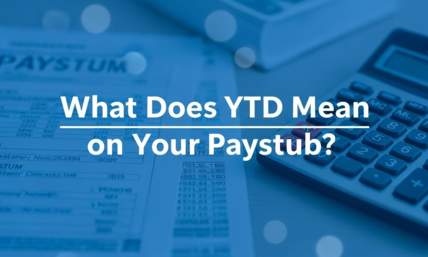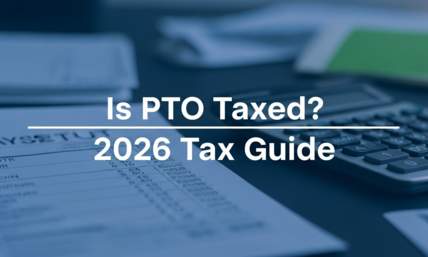How Is Compensation Determined? - The Full Guide
When we talk about compensation we are speaking about more than an annual salary or monthly wage. Compensation is a much broader system of recompense for a job and usually comes in the form of a package with benefits and perks.
If you are wondering ‘how is compensation determined?’ we’re here to help you understand.
Also read: How to Provide Proof of Income

Market Standards
The market standards for compensation relate to what the job market is paying for a particular role in certain industries. This relates both to what the level of compensation is for similar positions within the company and in competitor businesses.
An employer has to try and balance making an offer to a potential employee which is on the same scale as a competitor while remaining close to current employee compensation. What is offered should reflect the desired qualities of the candidate.
This can mean more than simply offering extra money but can include other perks and benefits. These can be no-cost perks such as flexible hours, professional development opportunities or extra vacation time.
Each employer will determine what compensation best fits their company while still attempting to attract and retain good caliber employees. So they will take into account both internal and external factors when deciding on a compensation package.
Also read: Wage Vs Salary

Experience & Education
Most employers will have a range of compensation offers for potential employees who have varying degrees of experience and levels of education.
Someone with little or no experience will be earning closer to the minimum while very experienced candidates or those with higher education credentials can earn the maximum.
The more experienced an employee is, the less likely employers are going to have to invest in their training. This makes an experienced candidate more desirable and can allow them to leverage their experience to get a more favorable compensation package.
A solid work history and a good education level are something that job candidates should highlight to potential employers. Someone with years of industry experience or a Master’s degree will expect compensation that reflects this.
Attracting and retaining high caliber employees is a goal for every business and will improve their bottom line through high productivity.
Also read: Proof of Income for a Mortgage
Skill Sets
It is very important for employers to consider the value of key skill sets when determining compensation. This is potentially a better way to gauge what level of compensation should be applied to a position rather than basing it on just a job title.
The same job role may have different titles in different companies or in other industries. So a more reliable metric can be the skills a potential employee has and what they can bring to a business.
Of course, certain skill sets can be applied across diverse industries and this makes the competition for those skills even bigger. This is why the compensation for these roles need to reflect the value of those skills to their company.
Someone coming in with some bonus skills should be compensated at the higher end of the range while someone who may need training to be able to do a job would rank at the lower end.
Also read: How to Save Money For a Car
Supply
If the demand for a particular skill or set of skills is high but the number of people possessing those skills is low this is going to push the level of compensation up to attract employees.
When there is a disparity between demand and supply employers could look further afield to recruit suitable candidates. Part of a compensation package in these instances could be remote working if that is feasible for the particular role or a relocation budget.
However, if the opposite is the case and there is an abundance of qualified candidates for a role then employers can be more conservative in their compensation offers.
Newly created roles or nascent industries can attract higher compensation as there are typically fewer people qualified to successfully carry out the tasks required.
When these roles and industries are well established there are typically more people trained for them and this leads to an increase in supply of suitable employees. Compensation levels then start to level out.
Also read: What is the 50 30 20 Rule?
Industry
Often, similar job roles will have very different levels of compensation based on the industry they are set in. This may be because some industries are just larger than others. Or it could be that the role is more important to the performance of a particular industry.
Some industries such as technology will have roles which are very specific and require particular skills. Compensation should reflect the level of skill required to do the job, the supply of suitably qualified candidates and what industry peers are paying for similar roles.
Typically employers will take note of what their industry is offering for various roles and apply that to their own compensation packages. This can include both direct and indirect compensation in the form of both money paid and incentives offered.
Location
The cost of housing in the location that a job is offered will usually have a major influence on the amount of compensation being proposed. As it is one of the major outlays for most people the cost of rent or a mortgage must be considered.
This is why compensation for jobs in large cities are often much higher than for similar roles in more rural areas. The same role in the same company may pay different amounts of compensation depending on their geographic location in the country.
In recent times the rise of remote working has meant that compensation has shifted from location based to role based. Of course not all roles can be carried out remotely and those which need a physical presence may still offer a location based element to compensation.

Final Thoughts
There are many elements, considerations and even algorithms that go into determining compensation for various roles.
It is difficult to pinpoint exactly what goes into every calculation but those we have included here will be among them.
We hope this guide has been helpful in understanding how compensation is determined.
Your check stubs can be a great way for you to keep track of your finances so you can easily add the figures to your spreadsheet.















